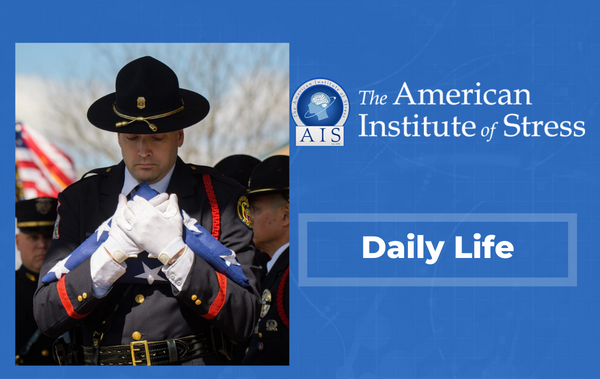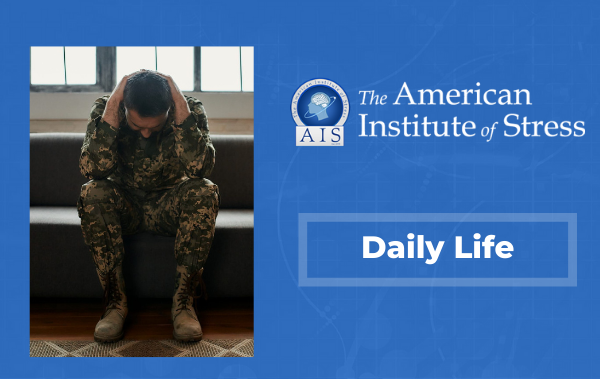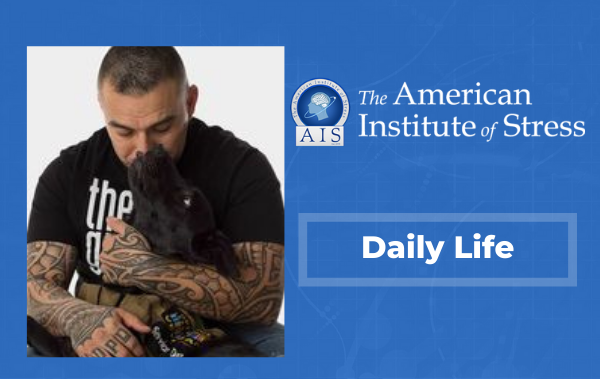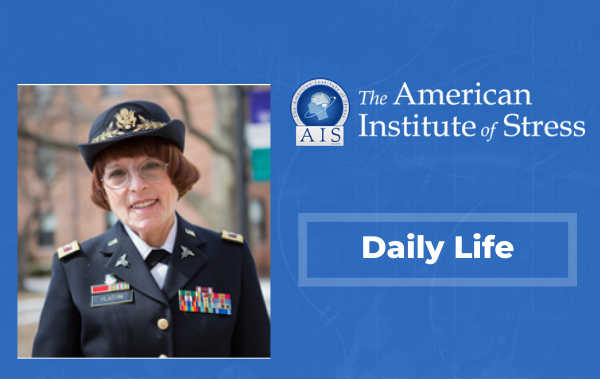Rebuilding after a devastating event is an ongoing process and some may experience post-traumatic stress disorder. Here’s what to know about it.
Reposted from www.nowtolove.co.nz

During this troubling time in our nation, with many people in our communities grief-stricken and struggling, we spoke to two American experts in post-traumatic stress disorder (PTSD) to understand more about what happens to people affected by terrifying life events, how to recognise the signs of PTSD, and what we can do, as individuals and a society, to help.
What is PTSD and why does it happen?
PTSD happens when somebody has experienced or witnessed significant trauma.
During PTSD, the mind goes into a state of shock and traumatic events are replayed and re-experienced weeks, months or even years later.
Traumatic memories, disturbing images, unwanted emotions and even sensations of the trauma are felt as if it is still happening in the present moment.
A major misconception is that only war veterans experience PTSD and if time has passed, someone is no longer at risk for PTSD.
Although PTSD does indeed affect war vets, the fact is that PTSD can develop in anyone, including children. Any event might be considered traumatic if you have experienced and/or witnessed a threat to your life, your body, your moral integrity, or had a close encounter with violence or death.
While the majority of people who go through a traumatic ordeal do go on to readjust to normal life after a period of time, not everyone can, and this has nothing to do with mental weakness.
Many other factors go into determining whether or not someone goes on develop PTSD.

PTSD manifests with many different symptoms, which can be understood with the simple acryonyms:
TEARS
Thoughts: Disturbing mental images, flashbacks, nightmares.
Emotions: Distress, fear, panic, anger, anxiety, sadness.
Avoidance: Feeling numb, avoiding interests, situations, people places, or events that remind you of the trauma.
Reactive: Hyper-reactive to stimuli, eg loud noises, smells or touch.
Stress: Neurochemical changes create a “high-alert” state.
PAIN
Physical: Raised heart rate, sweating, nausea, insomnia, easily startled.
Addiction: Substance abuse and behaviours that dull pain.
Irritability and Isolation.
Negativity: Low mood, low self-esteem, unable to think positively.
Does PTSD only affect people who’ve been involved, or can it affect you if you’ve heard about an event?
PTSD is the result of a significant mental or emotional stressor.
This can be something directly experienced (heard, seen or felt) or indirectly experienced (told, read or viewed). Simply knowing about a significant trauma, like the violent death of a loved one, is sufficient to create the shock-like condition of PTSD.
First responders, including paramedics and police, experience PTSD from witnessing or reviewing the details of horrific cases.
Essentially PTSD results when the mind is unable to cope with the trauma it’s subjected to, whether that’s through direct or indirect means.
Are there any common misconceptions about PTSD?
One of the most difficult misconceptions about PTSD for society to overcome is that individuals experiencing PTSD are simply mentally weak.
It is not uncommon for people experiencing PTSD to encounter friends and family asking them, “What are you still afraid of? What happened has happened, get on with your life!”
This is a very difficult myth for the mental health and PTSD advocacy community to combat. Unfortunately, mental health issues, in particular PTSD, are plagued by significant societal stigma.

Does it ever go away or can it only be managed and reduced?
The severity of PTSD symptoms, and their impact, depends on the trauma and the individual.
Less severe PTSD can sometimes self-resolve after the first few weeks. However, for the majority of individuals the mind simply cannot process the experience and symptoms persist without improvement.
Medications can help some individuals cope better with day-to-day triggers. Individuals can also learn to reduce symptoms like hypersensitivity and re-experiencing, but the trauma cannot be undone.
What triggers it or makes it worse?
With PTSD the mind is hyper-sensitive to anything connected to the original experience.
Familiar sights, sounds, smells, sensations, dates, words, songs, voices, people or places can trigger a re-experiencing of the trauma. Internal experiences, such as emotions, can also lead to flashbacks or a physical stress response.
The mind is trying to protect the individual from repeating the traumatic event, so the body is kept in a “fight or flight” response, where it is hyper-vigilant to trauma-related triggers.
Something innocent like the smell of freshly cut grass could be a huge trigger for somebody who experienced trauma in the presence of that smell.
Exposure to the news, internet and mainstream media’s typically negative coverage of world events is also triggering, increasing hypersensitivity and perceived threat.

What are some different ways of managing it?
There are some emerging therapies that help individuals reduce symptoms, sensitivity and emotional overwhelm associated with the experience.
There are two general pathways to managing PTSD: complementary medicine – including psychotherapy – and traditional prescription medications.
Eye movement desensitisation and reprocessing (EMDR) is a form of psychotherapy using a combination of event recall and rapid eye movements to break the patterns of emotional response and recall.
Cognitive behavioural therapy (CBT) helps individuals detach from feelings of guilt associated with the experience.
Reducing negative emotions, like blame, helps the mind let go and process the experience.
There is a significant amount of data supporting meditation as a treatment approach for patients with PTSD.
Research regarding the impact of meditation in the brain points to changes in brain structure and function that could account for the reduction of PTSD symptoms.
Transcendental meditation, a form of silent mantra meditation, has been shown to reduce PTSD symptoms, acute stress, and depression.
Prescription medications can alleviate overwhelming emotions. Speak to your doctor about whether they may be right for you.

Silent transcendental mantra meditation, has been shown to reduce PTSD symptoms.
If someone you know is experiencing PTSD, what is the best way to support them?
Accept the individual and their condition without judgement or criticism, and comfort and engage with them.
Anticipate triggers and avoid exposure to environments or people who trigger the trauma. Ask how to help, support or provide comfort and let them lead your interactions.
Commit to them and your relationship with them, building trust and safety. Create your own support network and ensure you look after your own needs.
Empathise – the emotional toll of trauma has a deep impact, and they may not be up to day-to-day tasks.
Grounding – taking slow, deep breaths and describing the environment reduces dissociation.
Participate in normal activities including exercise, hobbies, and social events.
Patience is needed to help the individual recover and process the experience gradually – it will take time.
Plan with them how they would like to be supported during a crisis and what help you can offer.
Reassure them and point out their capabilities, strengths, positive qualities and past successes.
Relax – make time for resting and downtime with relaxing and calming activities.
Resist telling them “It will all be okay”, or “It could be worse”, or other unhelpful clichés – it is what it is.
Remove yourself from the situation if you feel threatened and give them plenty of space.
Routines can reduce stress, especially when combined with a low-stress environment.
Safety – their nervous system is signalling “danger”, so do your best to help them feel safe and calm.
Seek guidance and professional support from organisations who work with those with PTSD.
Support – respect their boundaries while encouraging communication, contact and connection with others.
Understand their behaviour may seem irrational or volatile, but remember that it is triggered by the trauma, not you.
Watch for signs of anger or agitation and diffuse the situation before emotions erupt.
OUR EXPERTS:
Dr Robert Carter III is a Lieutenant Colonel in the US Army and medical scientist specialising in trauma and injury-related research.
Dr Kirti Salwe Carter was an intensive-care physician before training in public health. She is a Fellow of the American Institute of Stress (FAIS) and has been facilitating wellness seminars for the past decade.
They are co-authors of The Morning Mind: Use Your Brain to Master Your Day and Supercharge Your Life.





